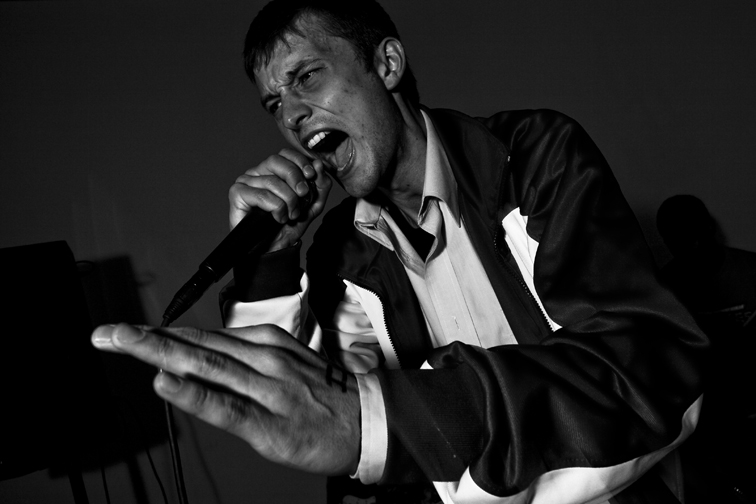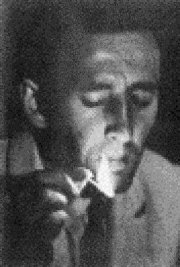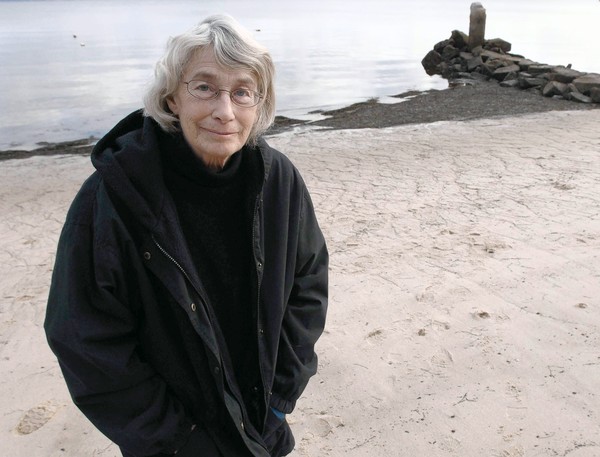POETRY MONTH 30/30/30: Day 6 :: Matthew Nelson and Jacob Perkins on Paul Legault
Interview with the Self by Jacob Perkins & Matt Nelson Q: In what way has Paul Legault improved your sex life? A: It’s a tough question. We’d like to point out that we didn’t get into sir Legault on our own. Like any good relationship it takes, at the very least, two. Our friend read from his book in the subway and all she had to say was, “This guy will turn you inside out,” which he of course didn’t. No one can do that to you and if they try, you should call the proper MTA authorities. But he did turn us outside in, as in what the ufkc? His poems trick you into thinking you’re reading multiple voices shouting in a space where shouts can echo, colliding with each other and creating new sounds. But the intellectual gift is that all the voices are thrown. There is only one Wizard in this Oz. Legault takes control of your equilibrium and maintains a kind of trustless navigation that is impossible to follow on first read. Q: What method of Paul Legault’s language turns you on and why? A: Well, if you are one of those who can pick out patterns, Mr. Legault, at least in The Other Poems, which, by the way is titled on the sub-title tacked to most collections of poetry, sticks pretty close to what we would describe as a format. In our own work the format relies on a series of folds (literal) which we attack as a unit, one space at a time, passing our work back and forth without verbal cooperation. This results in a timing based on mutual challenge and uncomfortability. It is unpredictable but refreshing, the rhythm. Paul (can we call him Paul?) discomforts the supposition that what you read before was what was you read before. Every line, every word is a question game. When did the adjective turn into a noun? How can time be turned into space with just the tiniest turn of a preposition? These are the types of strange knife twists Paul manipulates causing a poetry hemorrhage, showing you the insides of words.
POETRY MONTH 30/30/30 : Inspiration, Community, Tradition : DAY 5 :: Caits Meissner on Adam Falkner
 photo: jonathan weiskopf[/caption]
Adam Falkner is a poet, musician, high school English/Creative Writing teacher and former Michael Jackson dance-off champion – although he will probably deny the latter of those if asked. In addition to being published in anthologies and journals including decomP Magazine, The Esu Review, and The Other Journal, Adam’s poems have also been featured on HBO, BET, Michigan and New York Public Radio and in Time Out New York. He lives and works in Brooklyn.
Succinct Musing from Caits Who is Secretly in Love with Adam, but Only His Brain Because She is Married to Someone Else:
A few short months ago over dinner, I looked at Adam with a suspicious side eye. He appeared a blurry apparition through the candle light, or maybe from the second glass of wine I'd just finished. He was smiling a very nice smile because he is a very nice guy. I was giving him this unusual look because everything he said was eerily familiar. The voice in my head said, Are you me?
photo: jonathan weiskopf[/caption]
Adam Falkner is a poet, musician, high school English/Creative Writing teacher and former Michael Jackson dance-off champion – although he will probably deny the latter of those if asked. In addition to being published in anthologies and journals including decomP Magazine, The Esu Review, and The Other Journal, Adam’s poems have also been featured on HBO, BET, Michigan and New York Public Radio and in Time Out New York. He lives and works in Brooklyn.
Succinct Musing from Caits Who is Secretly in Love with Adam, but Only His Brain Because She is Married to Someone Else:
A few short months ago over dinner, I looked at Adam with a suspicious side eye. He appeared a blurry apparition through the candle light, or maybe from the second glass of wine I'd just finished. He was smiling a very nice smile because he is a very nice guy. I was giving him this unusual look because everything he said was eerily familiar. The voice in my head said, Are you me?POETRY MONTH 30/30/30: Inspiration, Community, Tradition: Day 4 :: Tishon Woolcock on Orhan Veli Kanik
 I’m going to level with you; I know nothing about Turkey and I know even less about Turkish Poetry. Luckily, I have Buké, my sole Turkish friend. Buké is tiny, smokes cigarettes, and speaks with a directness that can sometimes be mistaken for rudeness. It is she who introduced me to the Turkish poet Orhan Veli Kanik (1914-1950). I can’t speak to Kanik’s stature but, like Buké, his poetry is about as direct as a poet can get. Like the work of William Carlos Williams or, more contemporarily, Billy Collins, Kanik’s poems have been described as the kind of poetry that convinces readers they, too, can write a poem. Take, for example, “The Hill”.
I’m going to level with you; I know nothing about Turkey and I know even less about Turkish Poetry. Luckily, I have Buké, my sole Turkish friend. Buké is tiny, smokes cigarettes, and speaks with a directness that can sometimes be mistaken for rudeness. It is she who introduced me to the Turkish poet Orhan Veli Kanik (1914-1950). I can’t speak to Kanik’s stature but, like Buké, his poetry is about as direct as a poet can get. Like the work of William Carlos Williams or, more contemporarily, Billy Collins, Kanik’s poems have been described as the kind of poetry that convinces readers they, too, can write a poem. Take, for example, “The Hill”.THE HILL
Poetry Month 30/30/30: Inspiration, Community, Tradition: DAY 3 :: Bill Considine on Elinor Nauen
POETRY MONTH 30/30/30: Inspiration, Community, Tradition :: DAY 2: Pete Reilly on Mary Oliver
 Today we begin the community portion of our Poetry Month: Inspiration, Community, Tradition series with Peter Reilly writing on Mary Oliver's poetry and its influence on his work.
PR: Mary Oliver's gift is to describe the natural world simply, in a way that reveals the deepest secrets of our human heart. She is grounded in the reality of survival - life and death - predator and prey; yet never loses her eye for the eternal, for amazement, and for the magic of transformation.
From "Wild Geese"
You do not have to be good.
You do not have to walk on your knees
for a hundred miles through the desert repenting.
You only have to let the soft animal of your body
love what it loves.
[caption id="attachment_434" align="alignright" width="300" caption="photo: Brian Reilly"]
Today we begin the community portion of our Poetry Month: Inspiration, Community, Tradition series with Peter Reilly writing on Mary Oliver's poetry and its influence on his work.
PR: Mary Oliver's gift is to describe the natural world simply, in a way that reveals the deepest secrets of our human heart. She is grounded in the reality of survival - life and death - predator and prey; yet never loses her eye for the eternal, for amazement, and for the magic of transformation.
From "Wild Geese"
You do not have to be good.
You do not have to walk on your knees
for a hundred miles through the desert repenting.
You only have to let the soft animal of your body
love what it loves.
[caption id="attachment_434" align="alignright" width="300" caption="photo: Brian Reilly"] [/caption]
But little by little
as you left their voices behind,
the stars began to burn
through the sheets of clouds
and there was a new voice
which you slowly
recognized as your own
that kept you company
as you strode deeper and deeper
into the world,
determined to do
the only thing you could do -
determined to save
the only life you could save.
[/caption]
But little by little
as you left their voices behind,
the stars began to burn
through the sheets of clouds
and there was a new voice
which you slowly
recognized as your own
that kept you company
as you strode deeper and deeper
into the world,
determined to do
the only thing you could do -
determined to save
the only life you could save.
POETRY MONTH 30/30/30: Inspiration, Community, Tradition :: Overview and DAY 1: Lynne DeSilva-Johnson on Mina/Traver Pam Dick
 Mina/Traver Pam Dick (commence drooling) is, per her boiler-bio-plate, "a writer, artist and philosopher living in New York City. She's a native New Yorker. She received a BA from Yale and an MFA in Painting as well as an MA in Philosophy from the University of Minnesota. Her writing has appeared inTantalum, BOMB and The Brooklyn Rail, and is forthcoming in The Portable Boog Reader 4 and Aufgabe#9; her philosophical work has appeared in a collection published by the International Wittgenstein Symposium (Kirchberg am Wechsel, Austria)."
Reviews of her first book, Delinquent, are smattered with praise like this apropos nugget: "Like a gender-errant Benjamin, Mina Pam Dick constellates recombinant philosophies, aesthetic forgeries, and the intertextual detritus of the big slithering city. The poems and prose that pack Delinquent’s sucker punch are weighted with the freight of excess baggage, which means they are the very work of today" (—Vanessa Place)
Mina/Traver Pam Dick (commence drooling) is, per her boiler-bio-plate, "a writer, artist and philosopher living in New York City. She's a native New Yorker. She received a BA from Yale and an MFA in Painting as well as an MA in Philosophy from the University of Minnesota. Her writing has appeared inTantalum, BOMB and The Brooklyn Rail, and is forthcoming in The Portable Boog Reader 4 and Aufgabe#9; her philosophical work has appeared in a collection published by the International Wittgenstein Symposium (Kirchberg am Wechsel, Austria)."
Reviews of her first book, Delinquent, are smattered with praise like this apropos nugget: "Like a gender-errant Benjamin, Mina Pam Dick constellates recombinant philosophies, aesthetic forgeries, and the intertextual detritus of the big slithering city. The poems and prose that pack Delinquent’s sucker punch are weighted with the freight of excess baggage, which means they are the very work of today" (—Vanessa Place)CoCo Online POETRY MONTH PROJECT: 30 posts, 30 poets, 30 days: call for participants!









